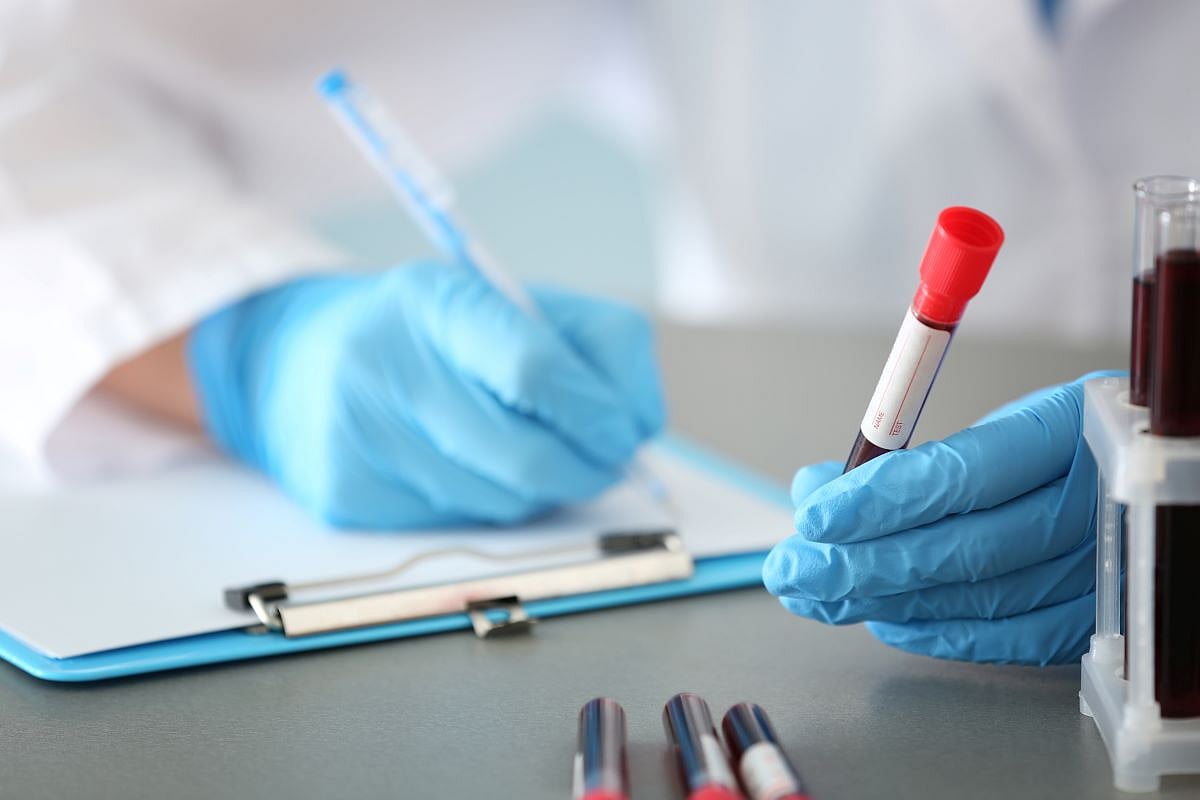Manténgase sano!

- Dennis Thompson
- Posted September 11, 2024
Blood Test Could Gauge Your Odds for Lung Trouble Like COPD
An experimental blood test could one day help identify people most likely to develop severe lung problems like COPD.
The test reviews a panel of 32 proteins in blood that best predict people most likely to suffer a rapid decline in lung function, according to a study published recently in the American Journal of Respiratory and Critical Care Medicine.
Adults with higher test scores have:
An 84% increased risk of COPD
An 81% increased chance of dying from a respiratory disease like COPD or pneumonia
A 17% increased risk of requiring hospital care for respiratory problems
A 10% increased risk of respiratory symptoms that need treatment, like a cough, mucus or shortness of breath
“Loss of lung function on a year-over-year basis is associated with poor respiratory health outcomes, but we do not have a good way to easily figure out if a patient is on a steep trajectory of lung function decline,” said researcher Dr. Ravi Kalhan, a professor of pulmonary medicine at Northwestern University Feinberg School of Medicine in Chicago.
“If we had an easy-to-implement clinical tool, like a blood test, that captured someone’s lung function trajectory at a single time point, it would enable earlier interventions which might, in the long run, improve lung health,” Kalhan added.
Chronic obstructive pulmonary disease (COPD) is a group of lung diseases that include emphysema and chronic bronchitis.
COPD prevents airflow to the lungs, causing sufferers to struggle to breathe. There is no cure, and COPD gets worse over time. However, there are ways to manage and treat the lung illness
Researchers created the test using data collected from nearly 2,500 U.S. adults during a 30-year study on heart and lung health.
Participants in the study took breathing tests to measure their lung function as many as six times over the three decades. During the study, 138 experienced a sharp decline in their lung function.
The research team screened thousands of proteins from blood samples provided by the participants at the 25-year mark. They found 32 proteins linked to lung function, and compiled them into a score that would predict a person’s future likelihood of severe lung ailments.
Researchers then tested that score on data from more than 40,000 adults from two earlier studies, and found that the test did indeed successfully identify people with the greatest risk of lung problems.
“Similar to using cholesterol levels to gauge a patient’s risk for having a heart attack, we’re looking at biological pathways to predict a person’s risk for having COPD or severe complications from COPD,” explained lead researcher Dr. Gabrielle Liu, a pulmonologist and assistant professor of medicine at the University of California, Davis Medical Center.
The blood test still needs to be verified in clinical trials before it can receive approval from the U.S. Food and Drug Administration, researchers noted.
“We are still not ready for this test to be used in practice, but it’s a promising advance,” said James Kiley, director of lung diseases at the National Heart, Lung, and Blood Institute, which funded the study.
“It consolidates insights from decades of breathing tests and medical evaluations into a single tool that has the potential to identify patients at risk for severe disease and complications,” he said in a National Institutes of Health news release.
More information
The American Lung Association has more about COPD.
SOURCE: National Institutes of Health, news release, Sept. 10, 2024

